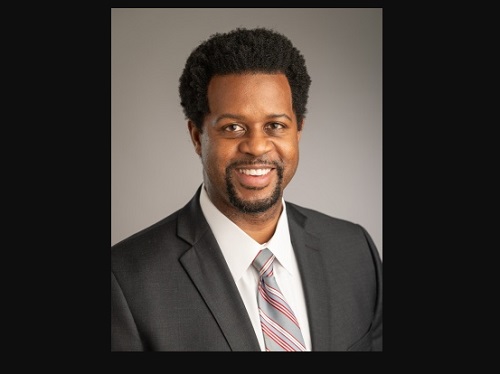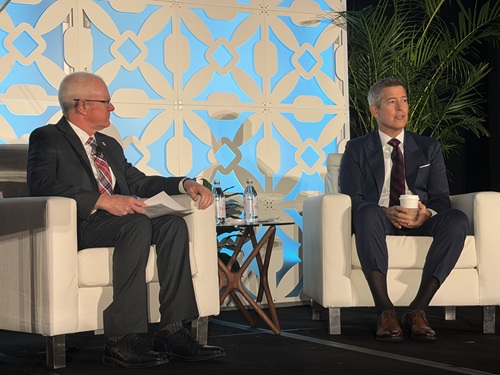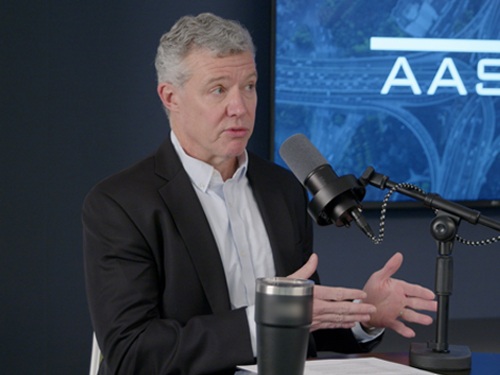The U.S. Department of Transportation recently released a “playbook” containing 28 “climate action strategies” for infrastructure projects overseen by state, tribal, city, and local governments; aimed at helping those entities create “more resilient, sustainable, and accessible transportation systems,” the agency said.
[Above photo by USDOT]
The USDOT said its “Climate Strategies That Work” playbook offers strategies that span infrastructure investments, technology applications, and policy initiatives. Those include active transportation, electric vehicles, and freight operational efficiencies for use by rural and urban communities.
The strategies are informed by the U.S. National Blueprint for Transportation Decarbonization, the agency said, and include information on achieving greenhouse gas reduction, economic development, and safety benefits, along with implementation funding opportunities and case studies that illustrate the impacts of these strategies in action.

“The transportation system of the future requires innovative technologies and use of space to make every trip for every person and every package more convenient, efficient, and clean,” said Dr. Robert C. Hampshire, USDOT’s principal deputy assistant secretary for research and technology, in a statement.
“There is no one key to transforming our transportation system into a tool of access, economic development, and sustainable growth,” he said. “This playbook outlines a menu of options for state and local leaders so that they can make data-backed choices that are right for their communities.”
The new playbook is in line with several other research initiatives spearheaded by USDOT and its modal administrations aimed at developing more sustainable transportation systems.
For example, in November, the Federal Highway Administration awarded $1.2 billion to 39 state departments of transportation via its Low Carbon Transportation Materials discretionary grant program.
That program, which received $2 billion in funding via the Inflation Reduction Act, provides states, tribes, metropolitan planning organizations or MPOs, and other agencies with reimbursement and incentive funding to purchase American-made low carbon construction materials and products, including asphalt, glass, steel, and concrete for use in transportation projects.
FHWA also noted that under the Low Carbon Transportation Materials program, state DOTs can establish “new processes” to use low-carbon materials on construction projects that receive federal aid.
 Nation
Nation
Fireside Chat: USDOT Secretary Lays Out Policy Focus
February 25, 2026 Nation
Nation

